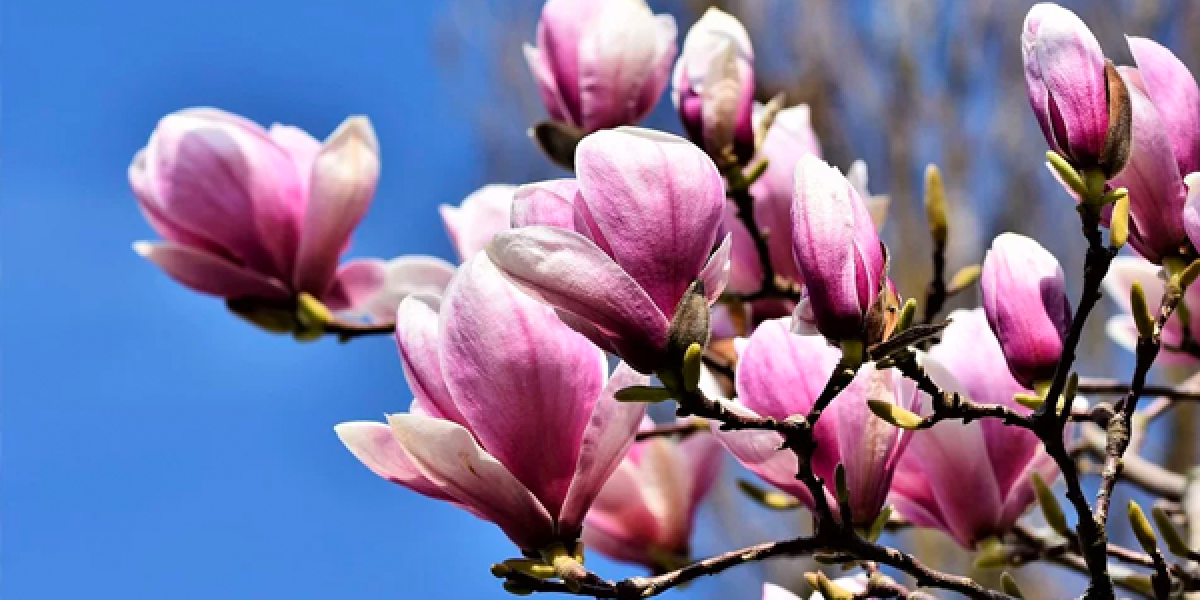USA: On Tele-Caring
30 March 2020|Leo J. O'Donovan S.J.

Next door to our Jesuit Community on East 83rd Street stand two magnificent magnolia trees that have been blooming early now in late March for over a week. Each splits at its base into paired trunks that then climb four stories high, their branches reaching toward each other and bearing countless blossoms that seem mysteriously delicate and hardy at the same time. Our magnolias are of the Alexandrina Saucer species, and so their blossoms are white at the perimeter, become blush pink and then blood red at the center. From below, their undulating canopy looks like Eden before Adam’s sin, above like the dome of heaven itself.
The beauty, the rainbow-hued creativity of nature is beyond our dreams.
Yet we also know its destructive power. The sea can sink the grandest of ocean liners. A dormant volcano can erupt and bury in ash an entire ancient city. The Lisbon earthquake of 1755 devastated the city and shook Enlightenment philosophy to its core. And now a pathogen has been released on the world and threatens its every citizen.
At Jesuit Refugee Service/USA in Washington, where I have been blessed to serve for almost five years now, we continue in our commitment to accompany, serve and advocate for refugees and displaced people on every continent, where they are by far the most vulnerable and threatened populations, now numbering over 70.8 million (of whom over half are children). Our team continues to work hard for those we serve; keeping our bills paid and our finances in order; ensuring our grantors are informed of precautions we are taking; continuing to tell the stories of refugees, creating awareness of their particular vulnerabilities during this time; continuing to plan and seek opportunities for the fall and beyond so that we’re ready to move forward when the crisis is over; responding to U.S. Government policies in the wake of COVID-19 that may affect refugees and asylum seekers; and garnering support from our network.
And despite the fact that group religious services have been canceled at U.S. detention centers, our chaplains continue to provide pastoral care for detainees who are now cut off from their families at this stressful time.
But for now the overall picture is a dark one, of an endangered humanity threatened by an uncontrollable nature, its bounty turned brutal. The number of refugees and others impacted across the countries where we offer programs is growing dramatically daily. It’s only a matter of time before the people we serve are seriously affected. Even now, many programs that are not essential, including education programs in line with government policies, are being canceled. However, there are many essential services that our staff globally are continuing to provide despite the risks to themselves, including education on avoiding transmission of COVID-19.
And so for now, like so many others, our JRS/USA team works from home—teleconferencing, sending and receiving ever more emails, using Zoom and Teams and who knows what all else. All at a distance, separated physically for very good reasons but when we most would like to be together—for the glances, the pat on the back, the random jokes, the annoyances even that now we see so quickly pass. Just the look of our colleagues faces. Not seeing them regularly, beside all the business work from home, we send beautiful poems, or favorite songs, or images from museums now closed. All because it is true that beauty will save the world.
And then there are the countless reports of doctors and nurses and scientists world-over who are working day and night to contain and address and eventually cure those infected with this scourge. A few of the health experts’ names are familiar. But they are our new heroes, saints really, who are doing with their knowledge and skills what we all long to do: heal the sick. And then, especially among the displaced of the world, to return to accompanying and educating and advocating for them.
Call it tele-caring if you will: loving our neighbors in as practical a way as we can, not simply by intention or words but by deeds and action, even if done at a distance and through the gifts and dedication of specialists we prize now more than ever. Somehow, I remember the story in the Gospel of John about the royal official whose son was deathly sick and sought out Jesus to ask him to come and heal him. Although Jesus distrusted the people’s desire for signs and wonders rather than the deep trust of faith, he told the official that his son would live. When the official believed in that promise of life and returned home, he found the boy indeed well again. The power of God in his incarnate Word had worked health—at a distance.
So let us remain in trust together, even if many of us are physically apart. With courage and patience let us work on in support of all who need us, as we indeed need them, our true sisters and brothers. As we care, I am convinced, we will learn to hope more deeply for our shared future. And thus hope will not only endure but blossom, like a magnolia tree of the heart, planted by the love that movers the sun and the stars.



